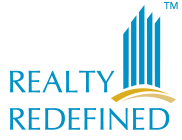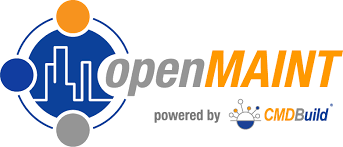Yes, most real estate software platforms are intended to be available from numerous devices and platforms. This means you may use it on your desktop, laptop, tablet, or smartphone, independent of operating system. Some software also includes mobile apps for easy on-the-go access. This enables real estate agents to run their businesses and communicate with clients from any device, boosting productivity and efficiency.
List of 20 Best Real Estate Software
Bhoomi is a software for streamlined data processing and improved decision-making. With its advanced features, Bhoomi optimizes manpower usage and reduces overhead costs, making it the perfect solution for various industries from construction to inve...Read More Bhoomi
Hire Aiva, an advanced recruitment software powered by artificial intelligence. Simplify your hiring process with automated candidate matching, efficient interview scheduling, and real-time analytics. Boost productivity, reduce time-to-hire, and ensu...Read More Hire Aiva
Ballast is the premier smart home automation software designed to simplify the management of modern amenities for property owners, renters, and apartment communities. Our comprehensive platform seamlessly integrates with your property, providing enha...Read More Ballast
LandTech is a workflow solution for unlocking development opportunities. Our state-of-the-art platform simplifies and streamlines every aspect of the land release process. From identifying off-market sites to managing all necessary preparations for c...Read More LandTech
AppFolio is a property management software created specifically for real estate experts, builders, developers, and contractors. It boasts cutting-edge automation and easy mobile accessibility to foster business growth. With its all-in-one accounting...Read More AppFolio
Crexi is a platform for success in the commercial real estate world. Our all-in-one solution offers a comprehensive suite of tools and features that streamline every aspect of the industry. From property listings and marketing to deal management and...Read More Crexi
HomeBuy360 is the revolutionary online platform that provides unparalleled access to your property. With HomeBuy360, you can easily track progress, view crucial documents, monitor payments, and track customizations – all in a single location...Read More HomeBuy360
Elliot is software created for property owners and onsite engineers. With its intuitive design, it simplifies facility management and increases productivity. This user-friendly solution enables effective management of properties, streamlining process...Read More Elliot
Innago, the premier rental property management software for landlords and property managers of small-to-mid-sized properties. With a free trial that doesnt require a credit card, Innago simplifies and streamlines your rental management processes. Exp...Read More Innago
RQube, the premier real estate ERP solution designed specifically for builders. This comprehensive platform serves as your organizations central hub, providing seamless management of data and streamlining workflow. With RQube, tasks such as database...Read More RQube
BrokerSumo is a software solution tailored for real estate brokerages. Its advanced tools and intuitive interface make commission tracking, agent management, and financial reporting effortless tasks. With reliable support and optimized efficiency, Br...Read More BrokerSumo
ACG Construction ERP solution designed to seamlessly integrate processes and data within the construction and real estate field. This robust software streamlines all financial, managerial, and operational aspects of your business, simplifying constru...Read More ACG Construction ERP
Realty Redefined solution for Real Estate consultants. Our powerful automation software streamlines all operations and elevates customer relationship management. With Realty Redefined, manage your office efficiently and meet your clients needs effort...Read More Realty Redifined for Consultants
Fortuna is a free real estate CRM designed for Australia and the USA. This innovative tool features grid views for effortless organization, searching, and comparing with clients through Email, SMS, and Merged Letters. Experience seamless navigation w...Read More Fortuna
Yardi is a software platform that serves the needs of both small and large companies across various industries, including public spaces, military housing, and corporate offices. With its emphasis on quality, innovation, and competitive pricing, Yardi...Read More Yardi
Cozy solution for all your property management needs. As a free and reliable software, Cozy is specially designed for landlords and property managers to simplify their rental process. With easy setup for your properties and comprehensive support at e...Read More Cozy
OpenMaint, based on the open source CMDBuild platform, is a property management software that raises the bar in terms of quality and technology. This advanced tool enables users to effortlessly manage and analyze certifications, and other vital data...Read More OpenMaint
Hemlane is a rental management software that simplifies the entire rental process. It allows landlords to easily find and manage tenants, with features like listing on multiple websites, lead tracking, automated late fees, document storage, maintenan...Read More Hemlane
Open Real Estate is an exceptional software that empowers real estate agencies and agents to effortlessly create professional websites. Built on the highly secure Yii CMF, this user-friendly platform is a valuable tool for increasing profits and opti...Read More Open Real Estate
Real Estate Cloud, the premier CRM solution for private agents. Revolutionize your real estate business with this software, packed with an array of features to simplify deal-making. Effortlessly integrate different modules with our user-friendly inte...Read More Real Estate Cloud
Learn More About Real Estate Software
- What Is Real Estate Software?
- What Are The Recent Trends In Real Estate Software?
- Benefits Of Using Real Estate Software
- Important Factors To Consider While Purchasing Real Estate Software?
- What Are The Key Features To Look For In Real Estate Software?
- Why Do Businesses Need Real Estate Software?
- How Much Time Is Required To Implement Real Estate Software?
- What Is The Level Of Customization Available In Real Estate Software?
- Which Industries Can Benefit The Most From Real Estate Software?
- Conclusion
What Is Real Estate Software?
Real Estate Software is a sort of software specifically created to help real estate professionals manage and streamline their company procedures. It provides a variety of tools and features to assist agents, brokers, and property managers in efficiently managing duties such as listing management, client relationship management, financial administration, and others.
At its core, the software serves as a hub for all real estate-related activity, offering a unified platform for managing listings, clients, transactions, and other critical data. This eliminates the need for manual documentation, several spreadsheets, and other time-consuming procedures, allowing agents to concentrate on closing sales and expanding their businesses.
One of the primary advantages of real estate software is its ability to streamline and automate tasks, saving time and effort for real estate agents. For example, the automatic listing management function allows agents to simply add, edit, and track property listings, as well as print professional-looking flyers and brochures with a few clicks.
Real estate software also includes comprehensive reporting and analytics tools, which allow agents to acquire vital insights into their business performance, client preferences, market trends, and more. This data-driven strategy enables agents to make more educated decisions and optimize their sales and marketing efforts. Real estate software also helps improve communication and collaboration among team members, clients, and other stakeholders.
Everyone engaged in a real estate transaction can stay up to date and collaborate smoothly with tools such as email integration, task assignment, and document sharing.
What Are The Recent Trends In Real Estate Software?
In today's fast changing real estate sector, real estate software has grown in sophistication and importance. With technological improvements and the increased desire for efficient and simplified procedures, several recent trends in real estate software attempt to give customers a competitive advantage. As a potential buyer, it is critical to stay educated about these developments in order to make an informed selection when selecting the best real estate software for your business.
Here are some of the major trends to keep an eye on:
1. Cloud-Based Solutions: With the advent of remote work and virtual teams, cloud-based real estate software has become a popular option due to its flexibility and accessibility. These solutions enable agents and brokers to operate their businesses from anywhere and on any device, eliminating the need for on-premise gear or software.
2. Big Data And Analytics: Real estate software is increasingly embracing big data and analytics to deliver important insights and predictions. This data, which includes market trends and property valuations as well as buyer behavior, can assist agents in making data-driven decisions and increasing their profitability.
3. Artificial intelligence (AI): AI is transforming the real estate sector by automating time-consuming operations like lead generation, email marketing, and property valuation. It can also enhance the client experience by making personalised recommendations and automating interactions.
4. Virtual And Augmented Reality: Virtual and augmented reality technology has entered the real estate sector, enabling agents to provide clients with virtual home tours and staging services. This trend has proven more important during the pandemic, when in-person interactions have become rare.
5. Mobile Apps: With the majority of buyers and sellers utilizing mobile devices, real estate software that includes mobile apps has gained popularity. These apps enable agents to access critical data and engage with customers on the fly, increasing their productivity and efficiency.
6. Integration With Other Tools: To improve workflows and efficiency, real estate software is now integrating with CRM systems, email marketing platforms, and accounting software. This integration streamlines data flow, minimizes manual labor, and boosts overall productivity.
Benefits Of Using Real Estate Software
Real estate software is an effective tool that can benefit both real estate professionals and their businesses. With the advancement of technology in the real estate sector, adopting software has become a critical component of success in today's competitive market.
Here are some of the main advantages of using real estate software:
1. Streamlines Operations And Increases Efficiency: One of the most significant advantages of using real estate software is that it simplifies various operations, making them more efficient and saving you time. These software solutions may manage listings, create contracts, track prospects, and automate marketing efforts, giving you more time to focus on other elements of your business.
2. Organizes And Consolidates Data: Real estate software enables you to keep all of your data in a single area, making it easier to access and manage. You can keep track of customer information, property listings, financial data, and more without having to dig through heaps of papers. This not only saves time, but also lowers the possibility of human error and ensures data correctness.
3. Improves Communication And Collaboration: Most real estate software includes communication and collaboration tools that enable team members to work effortlessly together. You can simply share documents, timetables, and updates to keep everyone on the same page. This leads to enhanced coordination, efficiency, and, eventually, better outcomes.
4. Provides Real-Time Insights: Real estate software has robust analytics tools that deliver real-time information on market trends, client behavior, and performance indicators. This knowledge is critical for making informed business decisions and staying ahead of competitors. With data-driven insights at your fingertips, you can make strategic decisions to expand your business.
5. Improves Customer Experience: In today's digital world, customers demand a seamless and personalized experience. Real estate software enables you to generate bespoke marketing materials, send automated emails, and deliver a more personalized experience for your clients. This not only increases consumer pleasure, but it also helps to develop long-term client connections.
Important Factors To Consider While Purchasing Real Estate Software?
When it comes to acquiring real estate software, you should keep a few essential aspects in mind to make the greatest option for your individual requirements.
Here are the main elements to consider while searching for real estate software:
1. Budget: Before you begin your search for real estate software, you should establish your budget. This can help you narrow down your alternatives and avoid splurging on features you don't need.
2. Software Type: Real estate software is classified into several types, including property management, CRM, and transaction management software. Consider which type will benefit your business the most and narrow your search to that.
3. User-Friendliness: The software should be simple to use and navigate, especially if you are not technically adept. A complex and confusing UI will only reduce your productivity and generate dissatisfaction.
4. Integration Capabilities: If you already use other software or tools for your real estate business, ensure that the new software is compatible with them. This will allow for a more efficient approach and avoid compatibility difficulties.
5. Features: Because various real estate software has different features, it's critical to assess and prioritize which ones are most relevant to your firm. Some important elements to check for are lead management, deal tracking, document management, and task management.
6. Mobile Accessibility: In today's fast-paced world, where business is frequently conducted on the go, it is critical to have real estate software that is mobile-friendly. This enables you to stay connected and run your business from wherever.
7. Customer Support: Whether you have technical issues or need help utilizing the product, having dependable customer support is critical. Look for software companies who give 24/7 support and many routes of communication.
8. Security: Since the software stores sensitive client information, security should be a primary priority. To safeguard your data from cyber dangers, use software with advanced security features.
By taking these criteria into account when searching for real estate software, you can make an informed selection and select software that fulfills your individual requirements, optimizes your company processes, and ultimately helps you achieve success in the real estate sector.
What Are The Key Features To Look For In Real Estate Software?
When it comes to finding the best real estate software, purchasers should consider a few essential factors. These characteristics not only ensure that the program satisfies their current requirements, but also enable scalability and future expansion.
The following are the main features to look for in real estate software.
1. Seamless Integration: Good real estate software should work effortlessly with the other tools and systems you use in your business. This includes your CRM system, marketing platforms, and accounting software. This connection saves time and work while also ensuring that all of your data is synced and up to date.
2. Customization And Flexibility: Each real estate business is unique, with its own set of processes and workflows. This is why it is critical to select software that provides for customization and adaptability. This allows you to personalize the program to your exact requirements, making it easier to adjust as your organization grows.
3. Cloud-Based Solution: With the rise of remote work and virtual teams, using cloud-based real estate software is critical. This enables agents to access information from anywhere and at any time. It also ensures that data is backed up and secured, giving you peace of mind.
4. User-Friendly Interface: Real estate software should be simple and intuitive to use, allowing both tech-savvy and non-tech users to navigate. This saves time on training and increases productivity for users at all levels.
5. Lead Management: Proper lead management is critical for real estate companies. Look for software that enables you to capture, track, and nurture leads in one location. Some software also includes lead scoring and automated lead follow-up, allowing you to prioritize and convert leads more effectively.
6. Transaction Management: Because real estate transactions require a large amount of paperwork and documentation, transaction management is an essential aspect. Look for software that allows you to save documents, use e-signatures, and track and manage transactions from beginning to end.
7. Mobile Compatibility: Because many real estate agents work on the go, having mobile-friendly software is critical. This enables agents to access information and complete duties from their phone or tablet, rather than relying on a desktop computer.
8. Reporting And Analytics: To make data-driven decisions and track your business's success, select software that includes reporting and analytics features. This enables you to track critical indicators and trends, allowing you to find areas for improvement and make more educated business decisions.
9. Customer Support: When purchasing any product, it is critical to examine the level of customer support available. Look for software that offers a variety of support options, including phone, email, live chat, and online resources. A good support team can significantly improve the success of your software implementation.
By keeping these crucial aspects in mind, buyers can guarantee that they are purchasing real estate software that fulfills their individual requirements and helps them optimize their business processes. Always examine your business requirements before making a selection, and select software that includes the functionality and support your company requires to grow.
Why Do Businesses Need Real Estate Software?
Real estate is a competitive and fast-paced industry, with companies continually attempting to outperform their competitors and maximize earnings. In such a complex and dynamic environment, firms must have effective tools and strategies in place to thrive. Here is where real estate software comes into play. Real estate software is a technological solution that helps firms streamline operations, automate processes, and increase overall productivity.
It provides a variety of features, including property administration, lead generation and management, marketing, customer relationship management, and financial and transaction management. The industry's growing reliance on technology is one of the primary reasons organizations want real estate software. With the advent of digital platforms and mobile devices, it is critical for real estate companies to maintain a strong online presence and provide a smooth experience for their clients.
Real estate software enables firms to meet the expectations of technologically savvy customers by providing a user-friendly and mobile-friendly interface. This not only improves the entire consumer experience, but also enables businesses to reach a larger audience and create more leads. Furthermore, real estate software provides firms with a single platform to manage all of their operations and data.
This improves internal structure, communication, and collaboration, resulting in more production and improved decision-making. Another key factor is the real estate industry's ever-changing laws and regulations. Real estate software assists organizations in remaining compliant by automating and recording important compliance activities, hence lowering the risk of human error and penalties.
Furthermore, real estate software provides organizations with useful insights and data analytics, allowing them to make data-driven decisions and improve their strategy. Businesses can uncover trends and patterns by tracking and analyzing important indicators and then adjusting their strategy accordingly. Real estate software can also help firms save money. Businesses can save time, money, and enhance efficiency by automating repetitive procedures and decreasing paper-based processes.
How Much Time Is Required To Implement Real Estate Software?
When it comes to deploying real estate software, the time required varies based on the product and the user's requirements. The implementation procedure can last anything from a few weeks to many months. During this period, you may expect to go through many stages of the implementation process, such as data migration, training, customization, and testing.
The duration of each stage will vary depending on the intricacy of your data and the availability of training resources. Implementing a basic CRM program normally takes 4-6 weeks. However, for more complicated software, such as a real estate transaction management system, it could take up to 2-3 months.
The size of your team, the level of customization required, and the complexity of your business processes all have an impact on the implementation timeline. It is critical to keep these considerations in mind while determining the implementation timetable. It is also worth noting that adopting real estate software necessitates tremendous work and collaboration from all team members.
It is critical to have a dedicated project manager who can oversee the implementation process and guarantee deadlines are reached. Finally, the time it takes to implement real estate software varies depending on the type of program, the size of your team, and the level of customization necessary. With good planning and coordination, you can ensure that your real estate software deployment goes smoothly and efficiently.
What Is The Level Of Customization Available In Real Estate Software?
When it comes to real estate software, one of the most crucial factors that buyers evaluate is the level of customisation available. This refers to the software's capacity to adapt and modify to the user's individual demands and requirements. Some software provides a one-size-fits-all solution, but others allow for a high degree of flexibility.
In general, real estate software offers three degrees of customization: basic, intermediate, and advanced. Basic customization often includes features like personalized branding, which allows users to add their company's logo and colors to the software interface. It may also allow users to brand their email templates or reports.
Intermediate customization features may include the ability to modify workflows, automate tasks, and integrate third-party apps or tools. Users can also establish preferences and permissions for individual team members, resulting in a more personalized user experience. This level of customization enhances the software's efficiency and adaptability. Advanced customisation is where real estate software excels.
This level of customisation enables users to design their own workflows, reports, and dashboards. It also offers access to the software's API, which enables users to create their own integrations and add-ons. This level of customization is usually reserved for more complex and comprehensive software solutions. Before acquiring real estate software, purchasers should think about their individual demands and the level of customization they desire.
Those with a smaller team or a simpler process may be pleased with basic customization, whereas larger teams or more complex workflows may require sophisticated customization possibilities. Buyers should conduct extensive research and understand the level of customization offered before making a purchase to ensure that the program suits their specific requirements.
Which Industries Can Benefit The Most From Real Estate Software?
Real estate software has become an indispensable tool for many sectors involved in the purchase, sale, and maintenance of property. Real estate software is intended to improve procedures, increase productivity, and, eventually, boost revenue for agents, brokers, property managers, and investors alike.
Let's take a closer look at some of the businesses that stand to gain the most from real estate software investments.
1. Real Estate Agents And Brokers: Agents and brokers are among the most active users of real estate software. These workers can considerably benefit from capabilities like client relationship management (CRM), lead generating, and transaction management. A CRM system enables agents to manage and track their clients' information, resulting in more tailored and effective contact. Lead creation tools can assist produce potential clients, whilst transaction management capabilities can streamline the documentation and paperwork process, making it more efficient and time-saving.
2. Property Managers: Property managers have a lot on their plates, including lease management and rent collection, as well as maintenance requests and expense management. Real estate software includes tools like lease management, rent monitoring, and maintenance request portals, which can assist expedite these processes and increase overall efficiency. Real-time data and analytics enable property managers to make informed decisions and stay on top of their properties' performance.
3. Real Estate Investors: Real estate investors must monitor the financial performance of their properties, and real estate software can be an invaluable tool in this regard. Investors can use features like portfolio management, financial planning, and investment analysis to track the performance of their assets and make data-driven decisions. Real estate software also includes market analysis tools, which help investors find prospective investment possibilities and track their profits.
4. Construction Companies: Construction enterprises that develop and renovate homes can also benefit from real estate software. Construction organizations may streamline their operations and track the progress of their projects by using capabilities such as project management, budgeting, and scheduling. Real-time information and communication channels enable greater coordination and collaboration among team members, increasing overall efficiency and decreasing delays.
5. Mortgage Lenders Mortgage: lenders play an important part in the real estate sector, and real estate software can help them streamline their procedures and improve the client experience. Loan origination, underwriting, and document management are some of the features that can help lenders manage loans more efficiently. Mortgage lenders can reduce errors and avoid the danger of losing critical data by implementing automated workflows and secure document storage systems.
Conclusion
Finally, investing in the correct real estate software can help both buyers and sellers in today's competitive market. With so many features and tools available, it is critical to clarify your exact requirements and goals before choosing a software. While some people demand advanced analytics and automation, others prefer user-friendly interfaces and connectors.Consider the provider's reputation and customer support, as well as the monthly prices and contract conditions.
By thoroughly researching and evaluating several possibilities, you can make an informed decision that will increase the efficiency and success of your real estate ventures. To keep up with the ever-changing real estate sector, remember to analyze and change your software usage on a regular basis. With the appropriate real estate software, you can reduce procedures, boost productivity, and maximize revenues. Thank you for reading this buyer's guide; we wish you success in your real estate endeavors.
Real Estate Software FAQ's
Can Real Estate Software Be Accessed Across Multiple Devices And Platforms?
Is Real Estate Software Future-Proof And Adaptable To Emerging Technologies Like AI, Blockchain Or IoT?
Yes, most modern real estate software is meant to be future-proof and adaptable to upcoming technologies such as artificial intelligence, blockchain, and the Internet of Things. These systems are always evolving and integrating new technology to improve their capabilities.
AI allows real estate software to evaluate market trends and automate processes such as lead generating. Blockchain technology can increase transaction transparency and security. IoT can aid in the management of smart house features for potential purchasers. As technology evolves, real estate software will continue to evolve and remain relevant in the sector.
Is There A Free Trial Offered To Assess Real Estate Software Before Committing?
Yes, several real estate software providers provide free trial periods to prospective consumers. This allows consumers to evaluate the software's features and functionality before making a purchase. Some companies may provide a limited duration trial, but others may provide a fully complete trial version. It is recommended that you take advantage of these free trials to discover whether the program suits your specific needs and requirements before making a decision.
Does Real Estate Software Offer Data Security Features And Meet Regulatory Compliance Standards?
Yes, most real estate software includes data security features like encryption and secure cloud storage to safeguard sensitive information. Furthermore, many real estate software applications are built to meet regulatory compliance criteria, such as the General Data Protection Regulation (GDPR) and the Fair Housing Act, to guarantee that data is handled in a proper manner. This gives real estate professionals piece of mind, knowing that their data is secure and compliant with industry standards.
Can Real Estate Software Integrate Seamlessly With Existing Tools And Platforms?
Yes, most real estate software is built to work easily with other products and platforms. This implies that you may quickly import and export data between platforms, as well as use the program alongside your existing tools with no compatibility difficulties.
Some software even has third-party interfaces, allowing you to link it to popular tools and platforms such as CRM software or MLS databases for a more streamlined experience. This integration feature elevates real estate software to a vital and efficient addition to any real estate professional's toolset.






















